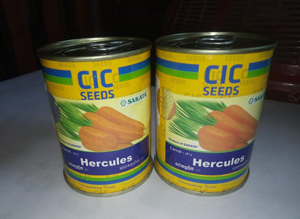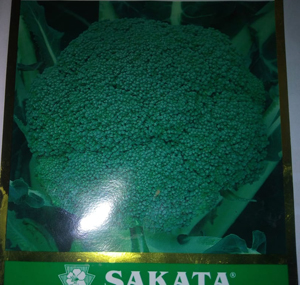News
Farmers fear dollar crisis to affect import of vegetable seed plants; urge local production
 Nuwara Eliya farmers express fears that the country’s dollar crisis will have a severe impact on the import of vegetable seed plants and the Although the country has agricultural research institutes, vegetable-seed plants are not produced on commercial scale in Sri Lanka, the farmers claim. “The seeds we buy are imported,” one farmer said.
Nuwara Eliya farmers express fears that the country’s dollar crisis will have a severe impact on the import of vegetable seed plants and the Although the country has agricultural research institutes, vegetable-seed plants are not produced on commercial scale in Sri Lanka, the farmers claim. “The seeds we buy are imported,” one farmer said.
In 2012, the Government in coordination with Japan International Cooperation Agency launched a pilot project to produce vegetable seeds plants in Sri Lanka, but the project appears to be at standstill. The Agriculture Department website page on the Vegetable Seed Project has not been updated since 2013.
In a June 24, 2013 comment posted on the website, Junji Takahashi, the chief advisor of the project said: “… we are now conducting practical vegetable seed production trainings at Kundasale, Mahailuppallama and Aluttarama government seed farms. Almost 100 technical staff of DoA (Department of Agriculture), private seed company technical staff and seed producing farmers are participating in the trainings. These kinds of trainings are going to be conducted every season. We assume that these activities will improve vegetable seed production techniques among participants. And it will lead to produce more high quality seeds.”
 Vegetable farmers say a few private companies are engaged in importing and distributing seed plants. But no government Institute is engaged in this task.
Vegetable farmers say a few private companies are engaged in importing and distributing seed plants. But no government Institute is engaged in this task.
As a result, the farmers say they have to buy seeds at high prices determined by these companies and now that the country is facing a dollar crunch, the prices are bound to go up.
They say 100g of leeks seeds costs Rs 3000 upwards while 100g of carrot seeds are sold at prices ranging from Rs. 1500 and cabbage seeds Rs.2500. Hybrid seeds are expensive. For instance, 100g of hybrid carrot seeds costs Rs. 7,000.
An elderly Nuwara Eliya farmer says that some 50 years ago, the state-run Potato Seed Farm at Mee Pilimana in Nuwara Eliya produced radish seeds and sold 100g only for Rs 8. “But since everything is imported now, no seed is produced in our country,” he says.
The farmers also say high seed prices were adding to their woes at a time when they are forced to buy agrochemical at exorbitant prices in the open market.
Provincial Agriculture Deputy Director Ranga Chandrasiri said the Agriculture Department together with the Galpalama Agriculture Training Centre has conducted research and successfully produced carrot seeds which were used in a model carrot cultivation project launched on March 1.
He also said producing seeds of radish and salad in green houses had also been started.
The best way to say that you found the home of your dreams is by finding it on Hitad.lk. We have listings for apartments for sale or rent in Sri Lanka, no matter what locale you're looking for! Whether you live in Colombo, Galle, Kandy, Matara, Jaffna and more - we've got them all!

